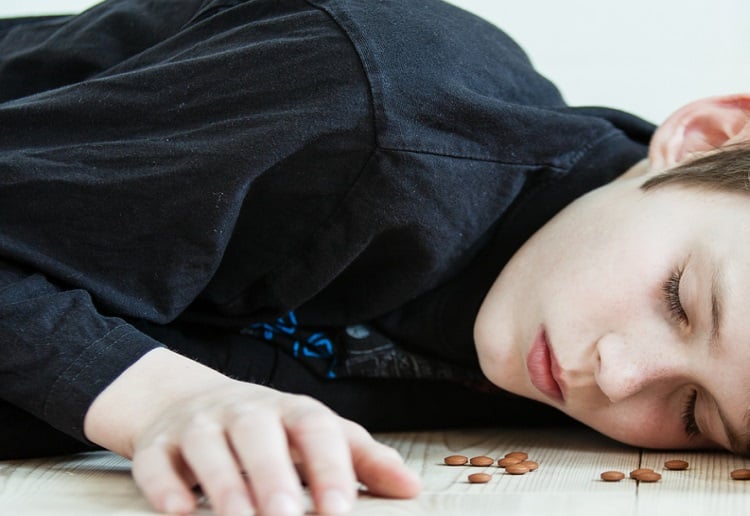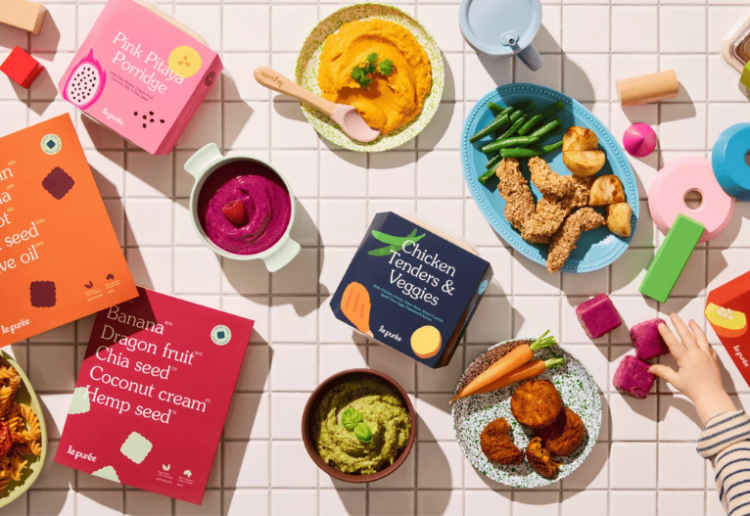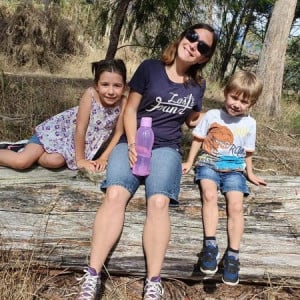A mother who watched as her 10-year-old son rocked in a corner of his room begging for someone to kill him to end his misery has revealed how anti-depressants turned her ‘gentle, loving’ son into angry and suicidal young boy.
Sydney mother, Donna, is just one of dozens of people involved in a class action over the use of ‘adult’ antidepressants in children in Australia.
The concerned mother spoke to Daily Mail Australia from beside her son Seth’s hospital bed on Friday after he was admitted for psychiatric care following multiple attempts to end his own life while being weaned off the antidepressant Aropax.
‘One day I came outside and he had a pair of scissors to his chest – he kept saying he was going to do it, so I had to call an ambulance,’ Donna said.
‘He was cuffed by paramedics and at the hospital I had to watch as he was held down by doctors, three security guards, nurses, and his father so he could be sedated.
‘He looked at me and said ‘please don’t let them do it mummy I will be good’ I will never forget that look on his face.’
Now, aged 10, he is in a psych ward of a Sydney hospital after a devastating few months where he would go from ‘rocking and crying in the corner asking his parents to kill him’, to trying to jump out of his mother’s moving car.
Brisbane mother Mel, 34, also revealed the devastating effect antidepressants had on her daughter Maiya, now 13. The child, who after taking the drugs at just six years old, started ‘fantasising about death’.
‘I will never forget the moment she looked up to me and said ‘mummy, I want to go with the angels now’, it was just after an episode which saw her crying for days,’ Mel said.
The despairing mothers said they both ‘feel like it is their fault’ for making their young children take the doctor-prescribed pills.
But the lawyer running the proposed class action, Tony Nikolic, told Daily Mail Australia he had heard the stories of up to 60 children who suffered severely after taking antidepressants.
‘The complaints range from people who were given it from as young as five – to teenagers who were put on them,’ he said.
The lawyer says the fact the two drugs are ‘not recommended for children’ is little known.
‘We know the 90 days coming on and 90 days coming off are the worst times for these families – as well as any time the dose is changed- that is when there is most likely to be trouble.’
The product information on both drugs says they are not recommended for children, but doctors continue to prescribe them.
Psychiatrist and Adelaide University research leader Doctor Jon Jureidini told Daily Mail Australia the drugs are widely used to treat anxiety in young children – but there is ‘no evidence supporting it’.
He claims doctors are given ‘contradictory information’ from the pharmaceutical companies – which ‘over the years have promoted the use of antidepressants in children’ despite the warnings on the drugs which say use for children isn’t recommended.
‘There is information which suggests tens of thousands of young people are on anti-depressants in Australia.
‘With these so-called anti-depressants a small number of children become suicidal and violent.
‘With any drug used in children it should be monitored very closely, and parents should get a second opinion,’ he said.
Seth’s mother Donna thought she was ‘doing the right thing’ by her son when she gave him the drugs because she ‘assumed the doctors knew what they were talking about’.
He was diagnosed with separation anxiety and ADHD in March 2012, when he was five, at the end of the year he was put on 20mg of Aropax.
According to the company’s product information ‘when AROPAX was tested in children under 18 years with major depressive disorder, obsessive compulsive disorder or social anxiety, there were additional unwanted effects to those seen in adults, such as suicidal thoughts, hostile and unfriendly behaviour and changing moods.
‘The use of AROPAX is not recommended to treat major depressive disorder in children under 18, as the drug has not been shown to be effective in this age group. The long-term safety effects of paroxetine in this age group have not yet been demonstrated.’
The drugs appeared to ‘fix’ the boy’s anxiety when he was first introduced to them.
When he was nine, and his behaviour was deteriorating the family decided he needed more help. Doctors doubled his dose of the drug.
‘He was euphoric again and I thought I must have been wrong to think it wasn’t working the way they said it would. But then he got way worse and I knew it was the medication. Seth’s suicidal tendencies got worse.
‘His father called me one day and told me Seth needed me, by the time I got to him he was in a ball, rocking in the corner yelling ”daddy please kill me I don’t want to do this anymore” it was absolutely heart-breaking, really hard to see your own child like that,’ she said.
‘I never knew it wasn’t for children, we were never told, if I had I wouldn’t have made him take it.’
Mel’s daughter Maiya, 13, took Zoloft for seven years – her depression continued to spiral out of control so doctors gave her more of the drug – which her mother says just made her sicker.
The once bubbly little girl had her two sisters, Jazlyn, 12 and Gemirah, seven, ‘walking on eggshells every day’.
‘I thought I was doing the right thing for her, I was just doing what the doctors said, I thought I had lost my baby girl to depression. Finding out the drugs I told her she had to have were making her sad kills me,’ Mel said.
‘She would attack her sisters and scream and yell – but what is worse is when she would just cry.
‘She cried for hours and hours and hours at a time it is heart-breaking to see your baby do that and not know how to help.’
Then 12 months ago Mel stumbled across information on antidepressants which revealed Zoloft, the drug her daughter had been taking, was ‘not recommended for children and could cause suicidal thoughts’.
Pfizer, the maker of Zoloft has confirmed to Daily Mail Australia that it should only be used for children aged 6 to 18 years of age to treat obsessive compulsive disorder (OCD).
‘I just burst into tears when I read it – I showed my mum I couldn’t believe it. We weened her off Zoloft, which was really tough but now she is a completely different kid.
‘She is not angry and there is no aggression. We don’t have unhappy days anymore,’ Mel said.
‘She will always have anxiety but we can cope with that – better then all those days of uncertainty, unhappiness and utter sadness. We never want to see that again.’
The young girl had ‘given up on life’ by the time her mother found the information on Zoloft and had stopped going to school and playing sport.
‘By the time she was 10 she was cutting her hair every time she got frustrated – when we went to see doctors they would put up her dose.
‘I am only speaking out because I never want any parent to go through what we have been through or to have their kids suffer like this.
The lawyer is looking for more people effected by antidepressants after being diagnosed the drugs as children.
‘We are looking for children who have demoniacal physical and psychological disabilities – Kids who took meds and are now in jail or took meds and jumped off a balcony and are now paraplegics.’
Fight for Kids shares, more than 17 million children worldwide have been prescribed psychiatric drugs so dangerous that medicine regulatory agencies in Europe, Australia and the United States have issued warnings that antidepressants, for example, can cause suicide and hostility in children and adolescents.
The U.S. Food and Drug Administration (FDA) has also issued a warning that stimulant drugs, such as Ritalin and Concerta can cause suicidal as well as violent, aggressive and psychotic behaviour, and that these same drugs can cause heart attacks, stroke and sudden death.
Children 5 years old and younger are the fastest-growing segment of the non-adult population prescribed antidepressants in the U.S. Children as young as 4 have attempted suicide while influenced by such drugs and 5 year olds have committed suicide. Between 1995 and 1999, antidepressant use increased 580% in the under 6 population and 151% in the 7-12 age group. In 2004, the FDA ordered that a “black box” label be placed on antidepressants warning that they can cause suicide in children and adolescents.
If you or someone you know are struggling and need support please contact beyondblue 1300 22 4636
Share you comments below.
Image shutterstock.
This story originally appeared on Daily Mail




















-

-
-
mom94125 said
- 10 Oct 2017
-

-
-
mom101628 said
- 06 May 2017
-

-
-
june11 said
- 03 May 2017
-

-
-
sars_angelchik said
- 26 Apr 2017
-

-
-
mom93624 said
- 25 Apr 2017
-

-
-
mom160421 said
- 25 Apr 2017
-

-
-
tessie said
- 25 Apr 2017
-

-
-
Ellen said
- 25 Apr 2017

-

-
-
musicmum said
- 25 Apr 2017
-

-
-
angie13 said
- 24 Apr 2017
-

-
-
mom206279 said
- 24 Apr 2017
-

-
-
rachel1970 said
- 24 Apr 2017
-

-
-
ella12 said
- 24 Apr 2017
-

-
-
nealsq said
- 24 Apr 2017
-

-
-
mom81879 said
- 24 Apr 2017
-

-
-
mom70876 said
- 24 Apr 2017
Post a comment12:54 pm
10:49 pm
7:39 pm
1:38 pm
4:52 pm
12:17 pm
10:46 am
3:03 am
1:10 am
8:56 pm
8:08 pm
7:07 pm
4:16 pm
4:11 pm
3:27 pm
1:03 pm
To post a review/comment please join us or login so we can allocate your points.